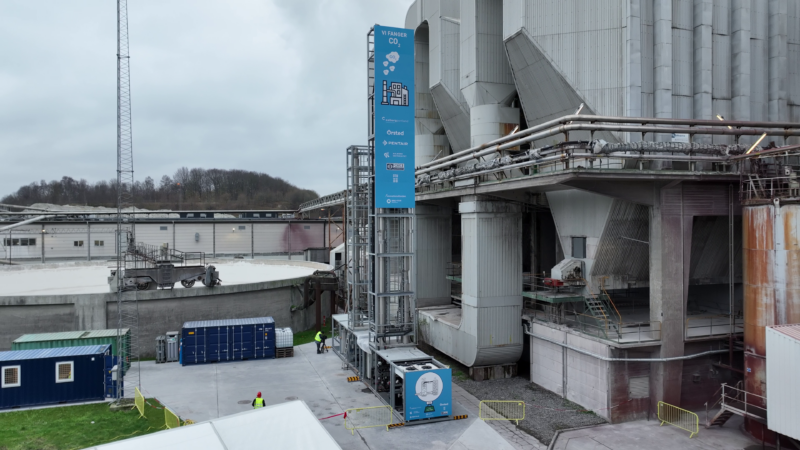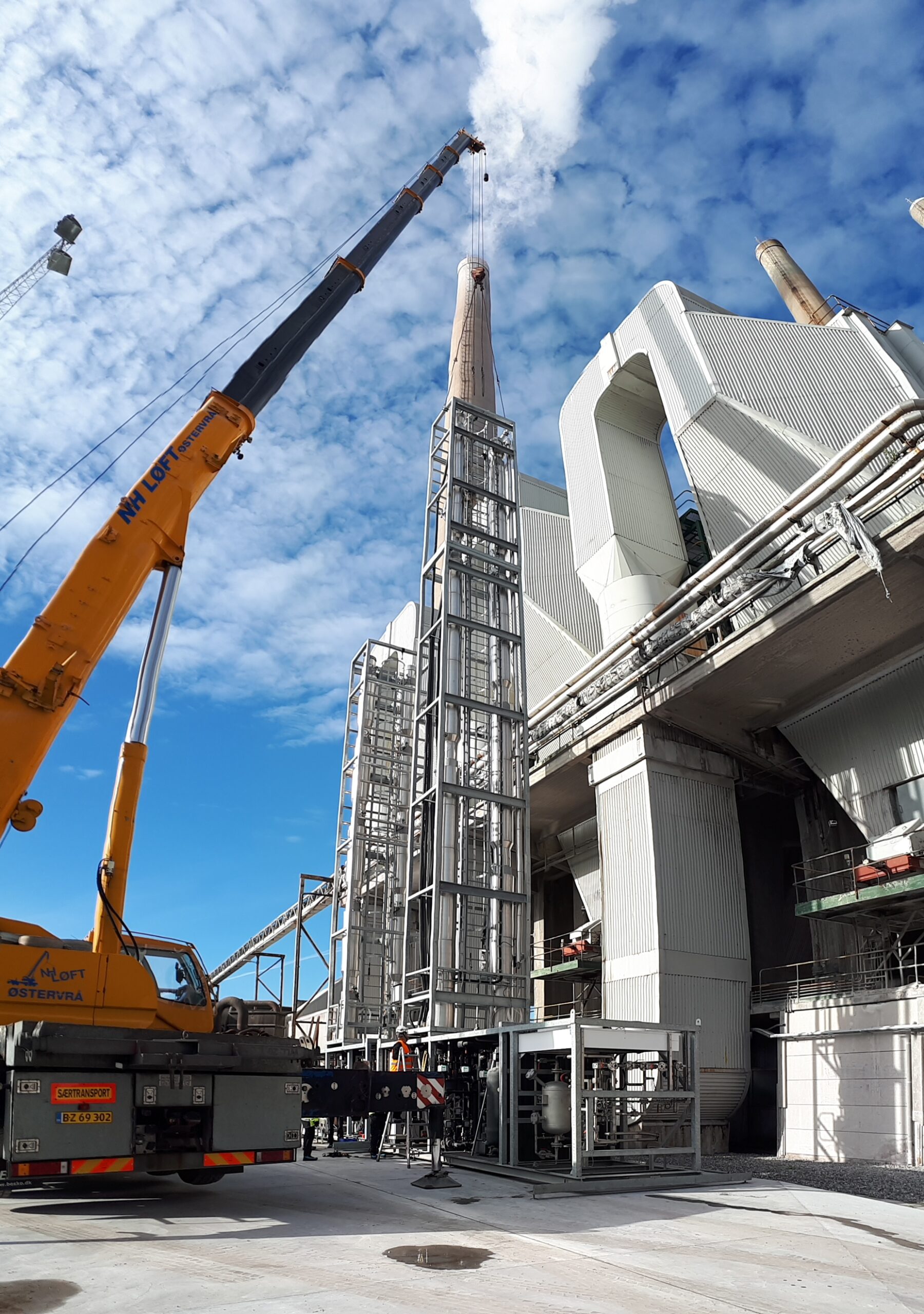Addressing this challenge, the CORT project identifies the most effective solvents and processes for various carbon capture scenarios.
The project is part of the INNO-CCUS partnership and is led by a collaboration between DTU Chemical Engineering at Technical University of Denmark, FORCE Technology, Pentair Union Engineering, Ørsted, Aalborg Portland and Aalborg University.
CORT uses a carbon capture pilot system that can be reconfigured for different sites and circumstances. During the project, this system was installed at two sites in Denmark to secure diverse testing environments: Aalborg Portland, a major Danish cement manufacturer, and Skærbækværket, a bioenergy power plant.
The project considers factors such as sector coupling, the compatibility of different types of solvents, their mixtures, process optimisation, and temperature variations, recognising that similar mixtures can behave differently in comparable conditions.













